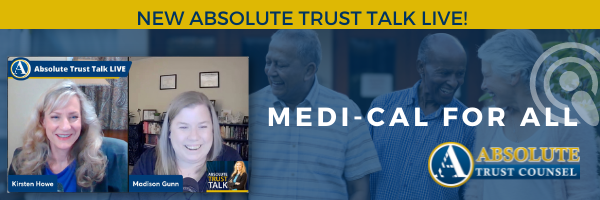Sally stared at the notice from the bank and frowned.
“What’s that?” her husband, Bill asked. “Another bill for your dad?”
Sally nodded. “But this time it’s his monthly mortgage payment. I wonder if we need to pay it. He’s only been dead five days. Maybe they aren’t aware of it.”
Bill snorted. “Why pay the mortgage if he’s dead? It’s not like anyone is living there. Besides, isn’t that what’s probate’s for? To sort those things out?”

Sally nodded. “It is, but I don’t want the bank to foreclose on the property before we can figure out who inherits. Besides, he refinanced last year. Got a really good deal on the interest rate. I imagine whoever inherits the house might want to keep the mortgage.”
“Can you even do that?” Bill asked. “I thought mortgages died with the holder. Besides, wouldn’t the house be sold to pay his bills?”
Sally shook her head. “I’m not sure. I know if we inherit his house, I’d love to hang on to his mortgage. His payments are half what ours are and he has twice the house. Maybe I should call the bank and find out what we need to do.”
“Let’s call the attorney who wrote up his will, instead,” Bill said. “I’m sure she would have a much better information.”
According to the U.S. Bureau of Labor Statistics, approximately 30 percent of all Americans between the ages of 65 and 74 still hold a mortgage. In addition, 14 percent of those 75 and older hold home debt.
That means some older family members are likely to hold a mortgage when they die. And since a house serves as collateral for a mortgage, when the homeowner dies, the heirs have a few decisions to make. A mortgage does not go away upon the death of a homeowner. It still must be paid or the home will be subject to foreclosure.
Some general rules:
- Keep the loan current. Make payments in full and on time. While probate is pending, submit receipts to the estate for reimbursement.
- Contact the bank holding the mortgage to discuss financing options until probate is completed.
- Maintain the home. Keep the utilities on and everything in good repair. Again, keep receipts for reimbursement from the estate.
- Pay home insurance and property taxes. It is important to maintain the insurance on the home, especially if it isn’t occupied. In addition, property taxes should be paid to avoid other adverse legal action.
Once probate is completed, the heirs will have several options:
- Assume the mortgage. Federal law authorizes the transfer of the mortgage to a relative or heir upon the original mortgage owner’s death. That means the heir can continue to pay the mortgage as if the death never occurred, with the same interest rate and terms. A bank cannot demand proof of financial fitness or demand that the mortgage be renegotiated. As long as payments are made on time, the bank has no grounds to call the loan or otherwise interfere.
- Refinance the mortgage. Heirs are free to replace the existing mortgage with one that provides lower interest rates and/or reduced monthly payments. If refinancing is declined or not feasible, the existing mortgage remains in place.
- Pay off the mortgage. There are several ways to pay off a decedent’s mortgage. The estate may have sufficient funds to settle the debt. The mortgage may be covered by insurance or the proceeds of a life insurance policy may be designated to pay off the debt. In the alternative, heirs may pay off the mortgage with personal funds or sell the home.
- Renegotiate the mortgage. When the payments are too high for heirs, and they have no other financial options, it may be necessary to meet with the bank and renegotiate the terms of the loan. While this is not always possible, factors such as existing equity in the home, the real estate marketplace, and the heirs’ credit rating will influence the outcome.
- Walk away. There are times when it simply makes more sense to walk away from an inherited home. For example, it isn’t financially feasible to hang onto a mortgaged home in great disrepair or one located in an area with declining property values. Sometimes the home is worth less than the existing mortgage. However, failure to assume the mortgage does not release the estate from that indebtedness. The bank can still sue the estate to recover monies owed. A better option may be to turn the property over to the bank with an agreement that the estate will not be held liable for any loss.
There are, of course, situations when responsibility for a mortgage is taken out of the heirs’ hands. For example, if there is a reverse mortgage on a home, the loan must be paid upon the owner’s death. If the decedent had substantial debt, the home may be sold to satisfy creditors and other debtors.
However, if the equity in the home exceeds the value of the mortgage and/or other debts, the heirs will be entitled to the remaining balance.
It is possible to plan for the disposition of a mortgage upon death. Options range from paying off the mortgage in advance to utilizing life insurance or other financial vehicles to pay off remaining debt. For more information on planning strategies, consult with your estate planning attorney.
[Ad] Walnut Creek Area neighbors! The time is now to protect yourself, your family, and the assets you’ve worked so hard for. If you don’t have an estate plan in place or need help updating the one you already have, we can help. California law is our specialty, and we will make sure you and your loved ones are prepared for the future starting now. If you have questions about our services or the content in this blog, please don’t hesitate to contact our team by calling 925.943.2740 or by sending an email to info@absolutetrustcounsel.com. Or, if you’re ready to get started, get your discovery call on the books by visiting our calendar to pick a date and time that works for you. We can’t wait to speak with you.
If you’re someone who needs to include Medi-Cal planning in your estate plan, we can help. For more information on what Medi-Cal planning should look like, visit https://absolutetrustcounsel.com/practice-areas/medi-cal-planning/ for even more resources to help get you started.





